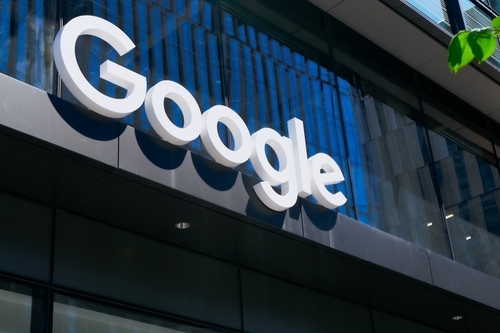Better Advertising Stock: The Trade Desk vs. Alphabet

The Trade Desk (NASDAQ: TTD) and Alphabet (NASDAQ: GOOG) (NASDAQ: GOOGL) represent two different ways to invest in the digital advertising market. The Trade Desk is the world's largest independent DSP (demand-side platform), which means it helps advertisers purchase ad space across a wide range of platforms. DSPs usually work with sell-side platforms (SSPs), which help publishers sell their own ad inventories.
Alphabet's Google bundles together a DSP, SSP, and other ad tech tools in its digital advertising platform. It generates most of its revenue from Google's search engine, advertising network, and YouTube, and it shares a near duopoly in the digital advertising market with Meta Platforms (NASDAQ: META).

Image source: Getty Images.
However, many advertisers that want to place or purchase ads across the "open internet" beyond Google and Meta's walled gardens often turn to independent DSPs like The Trade Desk. That's why some investors consider The Trade Desk to be a disruptive challenger to Google -- especially in the fragmented market for ad-supported streaming videos. Over the past three years, The Trade Desk's stock rallied more than 60% as Alphabet's stock advanced less than 20%. Let's see why the smaller ad tech outperformed the market leader -- and if it will remain a better buy for the foreseeable future.
The key differences between The Trade Desk and Alphabet
The Trade Desk generates most of its revenue by selling ad space across desktop, mobile, connected TV (CTV), and retail media platforms. Most of its growth is driven by the higher-growth CTV and retail media markets, which reduces its competitive exposure to Google and Meta in the mobile and desktop markets.
The Trade Desk is also evolving into a digital advertising giant as it expands its ecosystem. Its AI-driven Solimar platform helps its advertisers use their own first-party data to craft targeted ads instead of relying on flaky third-party data, its Unified ID 2.0 (UID2) solution eliminates the need for controversial third-party cookies, and its new OpenPath platform could eventually replace SSPs by directly connecting advertisers to publishers.
Alphabet generates most of its revenue from Google's advertising services, but the rest of its revenue mainly comes from Google's subscription-based services, its cloud infrastructure platform, and its sales of hardware products. Most of its recent growth has been fueled by YouTube's ads, the expansion of Google Cloud, and its rising number of paid subscriptions across YouTube Premium, YouTube Music, and Google One.
Which company is growing faster?
Over the past four years, Alphabet grew at a much slower rate than The Trade Desk.
Company | 2020 | 2021 | 2022 | 2023 |
|---|---|---|---|---|
The Trade Desk revenue growth | 26% | 43% | 32% | 23% |
Alphabet revenue growth | 13% | 41% | 10% | 9% |
Data source: Company earnings reports.
Alphabet faced a tougher slowdown than The Trade Desk during the pandemic as its mobile and desktop advertisers purchased fewer ads. Meanwhile, The Trade Desk's CTV business flourished as people stayed at home and watched more ad-supported streaming videos.
The Trade Desk also continued to grow faster than Alphabet in 2022 and 2023 -- even as macro headwinds drove many companies to rein in their ad spending. Once again, its exposure to the higher-growth CTV and retail media markets offset its slower growth in the desktop and mobile advertising markets. Alphabet also struggled to maintain YouTube's advertising momentum as it faced tougher competition from ByteDance's TikTok and Meta's Instagram Reels in the short video market, while its core search engine faced tougher AI-powered challengers like Microsoft's (NASDAQ: MSFT) Bing and OpenAI's SearchGPT.
Which advertising stock is a better value?
From 2023 to 2026, analysts expect The Trade Desk's revenue and EPS to grow at a compound annual growth rate (CAGR) of 22% and 62%, respectively. They expect Alphabet's revenue to rise at a CAGR of 12% as its EPS grows at a CAGR of 21%.
Based on those expectations, The Trade Desk's stock still looks expensive at 20 times next year's sales and 116 times forward earnings. Alphabet looks a lot cheaper at 6 times next year's sales and 20 times forward earnings.
However, Alphabet's valuations are being compressed by the U.S. Department of Justice's (DOJ) antitrust lawsuit, which could force it to spin off or sell some of its most valuable assets. An unfavorable outcome in that case could force analysts to rein in their estimates for Alphabet -- so it might be too early to claim its stock is undervalued. Yet it's also hard to justify going all-in on The Trade Desk at its current valuations.
The better buy: Alphabet
The Trade Desk is a great growth stock, but there's simply too much optimism baked into its shares. At these valuations, a single lackluster quarter could easily sink its stock. As for Alphabet, the market seems too pessimistic regarding its future. The DOJ will remain a thorn in its side, but it still has plenty of ways to expand in the high-growth digital advertising, digital media, cloud, and AI markets.
So if you believe Alphabet can weather these near-term headwinds and continue to grow, it might be smarter to buy its out-of-favor stock and wait for The Trade Desk's valuations to cool down.







